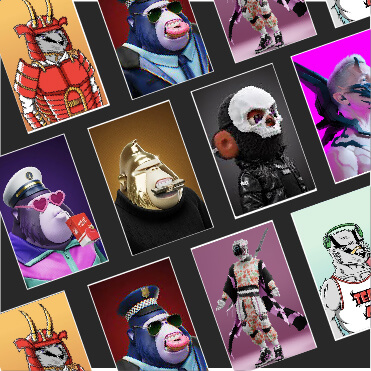Introduction
If the image and reputation of the cryptocurrency and NFT ecosystem take two steps forward, they are regularly pushed one step backward by some unscrupulous people in the industry, whose sheer existence in the industry revolved around stealing people’s money and their digital assets Their actions do not help the fledgling industry grow further.
Last week, a promoter of a NFT collection, along with his other unnamed co-conspirators, have been charged by The US Justice Department with frauds and international money laundering to the tune of millions of dollars. He could now face imprisonment of up to 40 years, if convicted of all counts.
These incidents not only hinder the growth of the industry but also justify the need for stricter regulations in different jurisdictions. China, for instance, has a tradition of banning all kinds of speculation on grounds of financial stability.
Although China does not have any specific guidelines on NFT, it did not stop almost all the technology giants of China to stop secondary trading of NFT, as they want to “self-regulate”. Read on to find out more.
NFT promoter charged in alleged rug-pull scam
The promoter of the Baller Ape Club NFT project and five other persons have been booked with criminal charges by The US Justice Department for their involvement in four separate cases that together raised more than US $130 million from investors.
The four cryptocurrency-related frauds included the biggest NFT scheme charged to date, a fraudulent investment fund that purportedly traded on cryptocurrency exchanges, a global Ponzi scheme involving the sale of unregistered crypto securities and a fraudulent initial coin offering, the US Justice Department said.
In one of the cases, Le Anh Tuan, a Vietnamese national, was charged with conspiring to commit wire fraud and also commit international money laundering, in connection with a scheme involving the Baller Ape Club NFT.
According to the indictment, shortly after the first day of the public sale of Baller Ape Club NFT, Tuan and his unnamed co-conspirators engaged in rug-pull, shut down the purported investment project, deleted its website and stole the investors’ money.
Based on blockchain analytics, shortly after the rug pull, Tuan and his co-conspirators laundered investors’ money through ‘chain hopping’ – a form of money laundering in which one type of coin is converted to another type and funds are moved across multiple cryptocurrency blockchains, the US Justice Department said in a statement.
Then, they used decentralized cryptocurrency swap services to obscure the trail of the stolen funds of Baller Ape Club NFT investors. According to the statement, Tuan and his co-conspirators obtained approximately US $2.6 million from investors. Tuan, if convicted of all counts, faces up to 40 years in prison, the US Justice Department said.
Chinese tech giants vow to stop NFT secondary trading
Chinese technology giants such as Tencent Holdings and Ant Group have signed a pact to stop the secondary trading of NFT and ‘self-regulate’ their activities in the market, according to Chinese state-owned media outlets.
The two companies were among 30 firms and institutions that have agreed to the “Digital Collectible Industry Self-Discipline Development Initiative”, in which they will help prevent secondary trading and speculation in NFT or digital collectibles.
The initiative was led by the Chinese Cultural Industry Association and the other signatories included Baidu and JD.com. China does not have any clear rules around NFT but it has a long tradition of stamping out speculations of any kinds on grounds of financial stability.
BAYC flags OpenSea error
Bored Ape Yacht Club (BAYC), one of the most popular NFT collections, has flagged an error by NFT marketplace OpenSea, in which the latter mistakenly and temporarily delisted a number of Bored Apes from their platform.
The issue was subsequently resolved and all the assets were again visible on the platform. BAYC informed its holders through a tweet that they were in contact with OpenSea to ensure such things did not happen again.
HTC launches first Metaverse phone
Smartphone maker HTC has launched its first Metaverse phone in the form of HTC Desire 22 Pro. The phone supports HTC’s Vive Flow VR headset and NFT. Owing to the phone’s compatibility with HTC’s Viverse ecosystem and HTC Vive Flow headset, users can experience virtual reality using this handset. The brand is offering a free NFT with the device, which can be redeemed through the Viveverse wallet. The phone is powered by Snapdragon 695 chipset and 128 GB of storage, while the software is laid on top of the specifications is Android 12.
NFT NYC witness record attendance; some tested positive for Covid
The recently held three-day NFT NYC, the biggest NFT event in the world, has attracted a record number of attendees including 15,000 artists and enthusiasts along with more than 1,500 speakers. The NFT NYC conference was held to promote Web 3.0 innovation and gathered as many folks together as feasible inside the Big Apple.
However, such a large congregation of people, at a time when the Covid-19 virus has not been fully eliminated from the world, has brought certain negative publicity when several participants got infected with the virus. The authorities have now advised every person who participated in the event to get tested for the virus.
NFT Tech buys Sherwa to expand further into P2E gaming
NFT Technologies Inc. has announced its acquisition of Sherwa Online Services, the company behind the Sherwa gaming platform. The Sherwa platform creates a space where gamers can join and interact with a gaming community, participate in community events and make connections between players to enhance any form of online play.
NFT Tech’s ability to deliver Web 3.0 projects for blue-chip brands and Sherwa’s access to more than 1 million gamers globally, will aid the company in meeting its long-term ambition to help transform the gaming industry, it said in a press release.
It also said that through the combined offering of NFT Tech’s new gaming platform and the addition of Sherwa’s gamer base, NFT Tech will be able to provide some of the largest gaming studios with an opportunity to gain players fast by offering them competitive rewards.
Gulf News launches NFT collection of archived photos
Dubai’s popular newspaper Gulf News has created its own NFT collection comprising series of archived photographs. The NFT launch was held in association with Virtua, a blockchain-driven virtual reality (VR) platform, which was also the marketplace for the NFT collection of Gulf News.
By preserving the historical archives of Gulf News as NFT, readers will be further engaged by being able to collect moments from the history of the United Arab Emirates (UAE), as compiled by Gulf News, the company said in an article published on its website.
Conclusion
Some of the negative incidents surrounding the cryptocurrency and NFT ecosystem do tarnish the image and reputation of the industry for a brief period. All key stakeholders therefore, should further increase their focus on innovations to fortify the digital assets and protect investors’ money from being stolen.
In this context, it must be noted that the responsibility of investors and consumers should be to be more careful and vigilant with their credentials used while dealing with cryptocurrency and NFT. Lowering the guards by investors on digital account security will boost the spirits of the criminals and other elements while heightened security will lower their unethical interest of theft and fraud.
Nonetheless, the crypto and NFT industry’s bright future is evident from the record attendance seen at the recently-held NFT NYC event in New York, the relentless spate of mergers and acquisitions in the space and the consistency in launches of NFT-compatible consumer products by some of the world’s top brands. Hope you enjoyed reading it.



